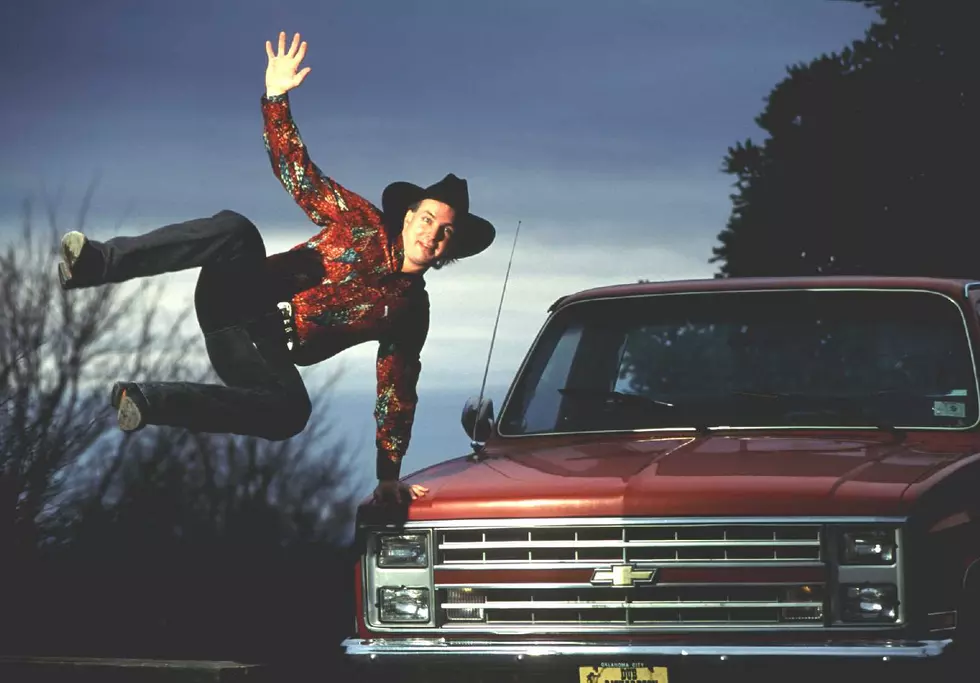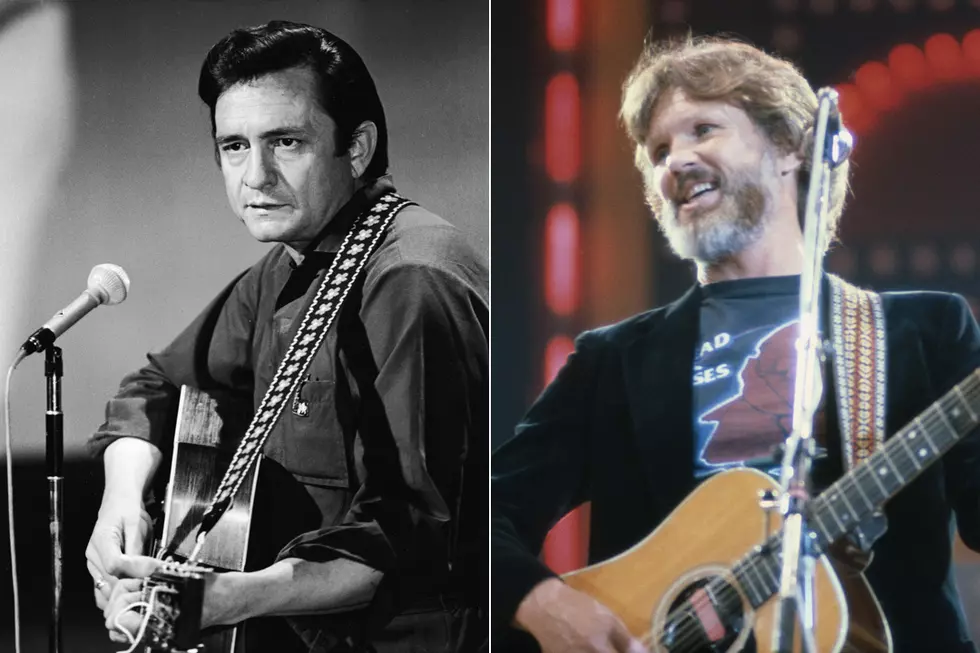
Recap: ‘Country Music,’ Episode 7 — Here Comes Texas
Waylon Jennings' speckled road to country stardom twists with Dolly Parton's self-paved path to the same during Episode 7 of Country Music, Ken Burns' exploratory PBS documentary on the sound that made Nashville famous. One singer wanted to grow his hair long and sing rough and sparsely-produced live cuts, while the other yearned for larger pop audiences and polish. Yet it's clear that the two couldn't be more similar.
The Outlaw movement, Parton's split from mentor Porter Wagoner and the important roles songwriters like Townes Van Zandt and Guy Clark played in shaping the sound of country music in the late '70s, early '80s (and beyond) are explained during this penultimate episode of the series. Jennings' rise from Littlefield, Texas, through clubs in Scottsdale, Ariz., to Nashville is perhaps most compelling if only because so little of his story has been popularized. There's no large-scale Waylon Jennings biopic out there, which is a dang shame.
“I kind of put it in very simple terms," wife Jessi Colter says, describing her husband's early days in Nashville. "They took a thoroughbred and treated him like a mule.”
Producer Chet Akins tried to break his spirit and turn him into another countrypolitan artist, and together they achieved some measure of success. A second record deal with RCA Records and the freedom to record what he wanted, how he wanted, with whom he wanted (unheard of in mid-'70s Nashville) birthed what would become the Outlaw movement, a term first coined by the late Hazel Smith, who simply stars during these two-plus hours of conversation.
"It sounds like a bad demo," producer Billy Sherril (an agreeable antagonist throughout the series) says later, speaking of Willie Nelson's Red Headed Stranger album, a project produced for just $4,000 under an agreement with Columbia Records similar to Jennings' with RCA. It was released at nearly the same time as Jennings' Dreaming My Dreams, and the two projects stand to get a big boost in sales in the near future.
“I said, 'Let’s do this,'" the late Sherril adds. "'Lets appease Willie by releasing the record. It will die a quick death. That way he’ll be more receptive to what everybody wants him to do. So we put it out and we were wrong as hell.”
The Country Music series continues to search for a definition of country music, something that — you've started to realize by now — is impossible. Notable luminaries express different opinions on the expanding genre borders. The late Jean Shepard recalls shock and anger when the countrypolitan sound (think Olivia Newton-John and Charlie Rich) took over. This culminated in Rich burning the card that held CMA Entertainer of the Year winner John Denver's name at the 1975 CMA Awards. We now catch the irony, but the story isn't fleshed out any further than what's previously been told.
“I don’t like fences built around music,” Bill Anderson says early in the episode, representing a more progressive opinion. “Cause fences, sure they keep things out, but also, they don’t let things in.”
Austin, Texas, became a hub for country music around this time, with songwriters like Nelson hanging around the popular Armadillo World Headquarters music venue, enjoying the embrace of a more dynamic, less judgey audience. Significant time is spent telling Gram Parsons' story and how he intertwined with Emmylou Harris. The thread from Van Zandt and Clark — two men who were as misunderstood as Jennings — to Nelson and Merle Haggard is tied taught. In fact, it's a beautiful thing to watch all these colorful characters get shaken up, tossed in the air and settle into their proper place on this wonderful canvas.
Parton's story is as big as Texas, and she gets an appropriate amount of screentime here. The level to which Wagoner controlled her will shock and alarm many, but how she navigated out of a bad situation and around other obstacles holding back other women in country music is what's most important. The Hall of Famer dreamed very big beyond the music and pressed forward, figuring the smell of money would be more powerful than any carnal impulses. Signing with a Los Angeles management company was seen as sacrilege, but it led to some of her most lucrative songs and concepts. As much as Jennings and George Jones — whose trials with Tammy Wynette, booze, cocaine and bankruptcy are detailed during Episode 7 — Parton's mainstream success thrust country music into the limelight. A stunning metric summarizes it all:
Between 1973 and 1983, the number of country music radio stations tripled, from about 700 to over 2,000. This was arguably the most important era in modern country history.
The remaining episode of Country Music will air on Sept. 25. All episodes are airing at 8PM ET on PBS and are also available on the PBS video app and PBS.org.
THIS CONTENT BROUGHT TO YOU IN PARTNERSHIP WITH COUNTRY MUSIC ON PBS.
More From KLAW-FM







